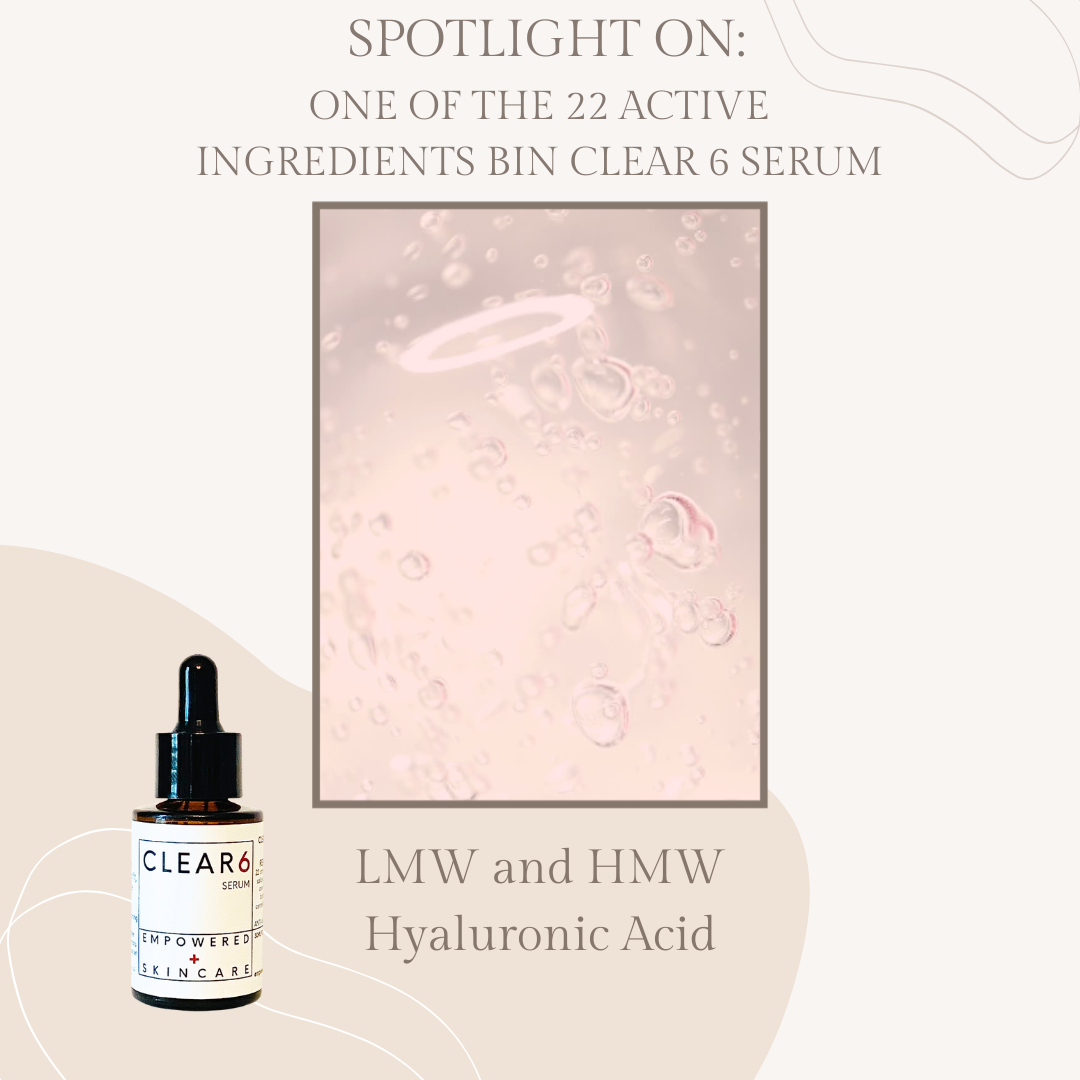
The Ultimate Guide to Skin Hydration: How to Achieve and Maintain Hydrated, Glowing Skin
Achieving perfectly hydrated skin is a universal goal in skincare. Proper hydration not only gives your skin a healthy, youthful glow but also strengthens its barrier, making it more resilient to environmental damage and aging. The importance of skin hydration cannot be overstated, as dehydrated skin can lead to dullness, fine lines, irritation, and even breakouts. In this comprehensive guide, we'll explore the science behind skin hydration, the best ingredients to keep your skin hydrated, and why products like hyaluronic acid, ceramides, and caprylic triglycerides are key to achieving and maintaining healthy, glowing skin.
Why Hydration Matters for Your Skin
The outer layer of your skin, known as the stratum corneum, acts as a protective barrier. It consists of skin cells (corneocytes) and lipids that help maintain the skin's hydration balance. When your skin is properly hydrated, this barrier functions optimally, retaining moisture and keeping irritants out. However, when the skin becomes dehydrated, the barrier is compromised, leading to trans-epidermal water loss (TEWL)—essentially, water evaporates from the skin, resulting in dryness, sensitivity, and a dull appearance.
Hydrated skin is not just about aesthetics; it's also about skin health. Properly moisturized skin helps facilitate faster cell turnover, increases collagen production, and improves skin elasticity. Hydration also plays a role in maintaining the skin's pH balance, which is crucial for protecting the skin from environmental stressors and preventing skin conditions like eczema and dermatitis.
Signs of Dehydrated Skin
Before diving into the solutions, it’s important to understand the common signs of dehydrated skin. These symptoms can vary depending on your skin type and environment but typically include:
- Dullness: Dehydrated skin often appears lackluster and flat.
- Tightness: You may feel an uncomfortable tight sensation, especially after cleansing.
- Increased Sensitivity: Dehydrated skin is more prone to irritation, redness, and inflammation.
- Fine Lines and Wrinkles: Dehydration exacerbates the appearance of fine lines, particularly around the eyes and mouth.
- Flakiness: Dry patches or flaky areas can appear, even in those with oily skin.
The good news is that with the right skincare routine, ingredients, and lifestyle changes, you can restore your skin’s hydration levels and maintain a radiant complexion.
Key Ingredients for Hydrating Your Skin
1. Hyaluronic Acid: The Hydration Hero
One of the most well-known ingredients for hydrating the skin is hyaluronic acid (HA). HA is a humectant, meaning it draws water from its surroundings and binds it to the skin. This powerful ingredient can hold up to 1,000 times its weight in water, making it one of the most effective hydrators available.
Benefits of Hyaluronic Acid:
- Immediate Hydration: Upon application, hyaluronic acid provides instant hydration, plumping the skin and smoothing out fine lines.
- Enhanced Skin Barrier Function: By keeping the outer layers of skin hydrated, HA improves the skin's ability to defend itself against external stressors, such as pollutants and UV rays.
- Non-Comedogenic: Hyaluronic acid is lightweight and suitable for all skin types, including oily and acne-prone skin, as it hydrates without clogging pores.
How to Use Hyaluronic Acid:
Hyaluronic acid works best when applied to damp skin. After cleansing, spritz your face with water or use a hydrating toner, then apply your HA serum. Follow up with a moisturizer to lock in the hydration. The key is to seal the water into the skin so that it doesn't evaporate.
2. Ceramides: The Skin Barrier Strengtheners
Ceramides are naturally occurring lipids that make up around 50% of the skin's outer layer. These fats are essential for maintaining a healthy skin barrier and preventing moisture loss. As we age, the natural levels of ceramides in our skin decrease, which can lead to dehydration, irritation, and signs of aging.
Benefits of Ceramides:
- Barrier Repair: Ceramides play a crucial role in maintaining the skin’s barrier, locking in moisture and keeping irritants out.
- Reduced Sensitivity: A compromised barrier can lead to increased sensitivity. Ceramides help reduce irritation and inflammation by restoring the skin's protective shield.
- Long-Lasting Hydration: Ceramides not only hydrate the skin but also help it retain moisture for longer periods, making them ideal for dry and dehydrated skin types.
How to Use Ceramides:
Ceramides are found in moisturizers, serums, and creams. Look for ceramide-containing products, especially if you have dry or sensitive skin. For best results, use them after applying a hydrating serum (like one with hyaluronic acid) to seal in moisture.
3. Caprylic Triglycerides: The Lightweight Moisturizer
Caprylic triglycerides, derived from coconut oil and glycerin, are excellent emollients that help soften and smooth the skin. While they are oil-based, they are lightweight and non-greasy, making them an excellent option for people with oily or combination skin. Caprylic triglycerides also have a stabilizing effect on other ingredients, making them a common addition to skincare formulations.
Benefits of Caprylic Triglycerides:
- Moisture Retention: Caprylic triglycerides form a barrier on the skin's surface, preventing water loss and locking in hydration.
- Antioxidant Properties: This ingredient also has antioxidant benefits, helping protect the skin from free radical damage.
- Non-Comedogenic: Despite being derived from coconut oil, caprylic triglycerides are non-comedogenic, meaning they won’t clog pores or lead to breakouts.
How to Use Caprylic Triglycerides:
Caprylic triglycerides are commonly found in moisturizers and cleansers. They work well in combination with other hydrating ingredients like ceramides and hyaluronic acid, ensuring your skin stays moisturized without feeling oily.
The Importance of a Consistent Skincare Routine
Hydration is not just about using the right ingredients but also about creating a skincare routine that allows your skin to stay hydrated throughout the day and night. A well-structured routine helps maintain a healthy balance of moisture, while also addressing other skin concerns such as acne, aging, or hyperpigmentation.
Here’s a simple, effective skincare routine for maintaining hydration:
1. Cleanser:
Start with a gentle cleanser that doesn’t strip the skin of its natural oils. Look for a cleanser that contains hydrating ingredients like glycerin, hyaluronic acid, or ceramides. Avoid cleansers with harsh sulfates, as they can exacerbate dehydration.
2. Toner:
Toners have come a long way from the alcohol-based astringents of the past. Today’s hydrating toners often contain humectants like glycerin and hyaluronic acid, which draw moisture into the skin. Apply a few drops after cleansing to prep your skin for the next steps.
3. Serum:
A hyaluronic acid serum should be a staple in any hydrating skincare routine. Apply this while your skin is still slightly damp to maximize its moisture-binding properties.
4. Moisturizer:
Follow your serum with a ceramide-based moisturizer to lock in hydration and repair the skin’s barrier. Look for a lightweight formula if you have oily skin or a richer cream if your skin is dry or sensitive.
5. Sunscreen:
Hydration and protection go hand-in-hand. UV exposure is one of the leading causes of moisture loss and premature aging. Always apply a broad-spectrum SPF 30 or higher sunscreen as the last step in your morning skincare routine.
External Factors That Affect Skin Hydration
While using the right skincare products is crucial, external factors also play a significant role in maintaining skin hydration. To fully understand how to keep your skin hydrated, it's essential to consider the following factors:
1. Climate:
Living in a dry or cold climate can deplete your skin's moisture levels. Cold air and wind strip away the skin’s natural oils, leaving it feeling tight and dry. On the other hand, hot climates increase sweating, which can lead to dehydration if not properly managed.
Solution:
Use a humidifier in your home to add moisture to the air, particularly during the colder months. This can help prevent dehydration and maintain the skin's hydration balance.
2. Diet:
What you eat can have a significant impact on your skin’s hydration levels. Water-rich foods like cucumbers, watermelon, and leafy greens help keep your skin hydrated from the inside out. Foods high in healthy fats, like avocados and nuts, support the skin's barrier function, keeping moisture in and irritants out.
Solution:
Incorporate a balanced diet rich in vitamins, antioxidants, and essential fatty acids to support overall skin hydration. Drink plenty of water throughout the day to maintain hydration at the cellular level.




Leave a comment
This site is protected by hCaptcha and the hCaptcha Privacy Policy and Terms of Service apply.